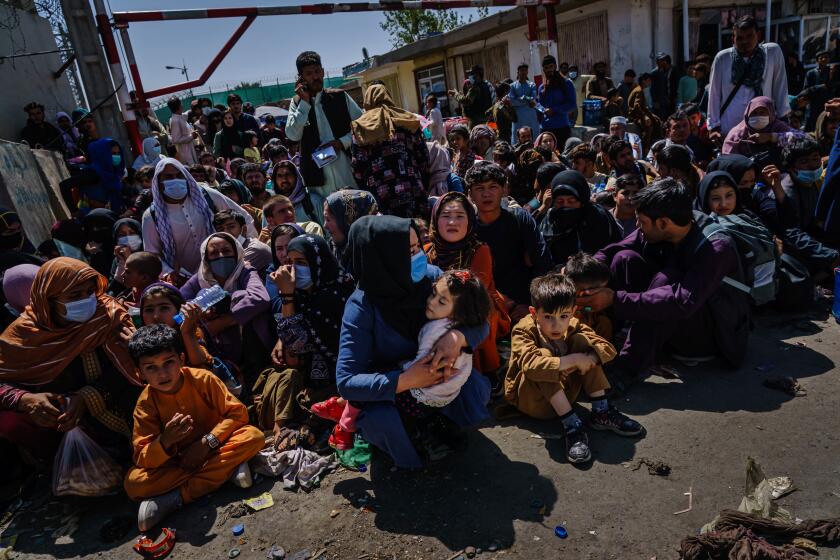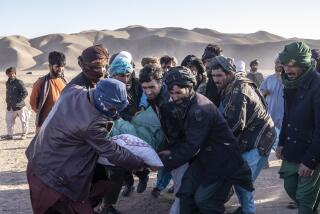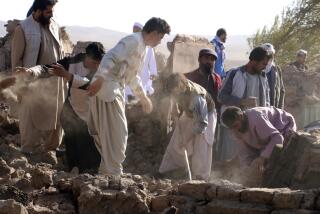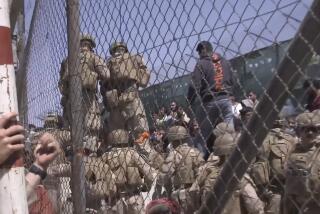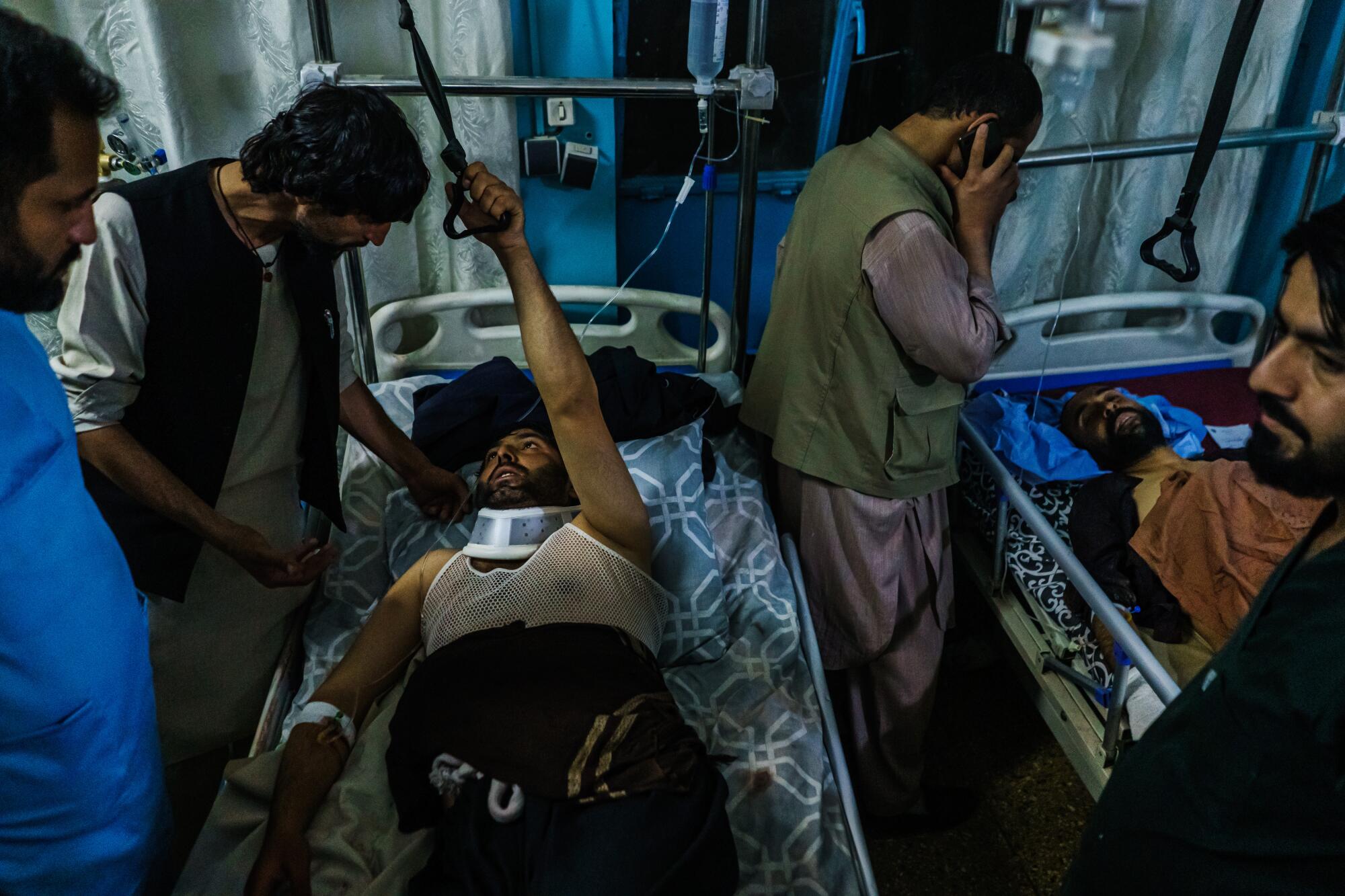
- Share via
KABUL, Afghanistan — Twin bombings struck near the entrance to Kabul’s airport Thursday, ripping through crowds of Afghans and foreign nationals waiting for evacuation from the country, killing dozens of people, including 12 U.S. service members.
The full death toll has yet to be determined, but some reports have suggested it could be as high as 60, with many more wounded.
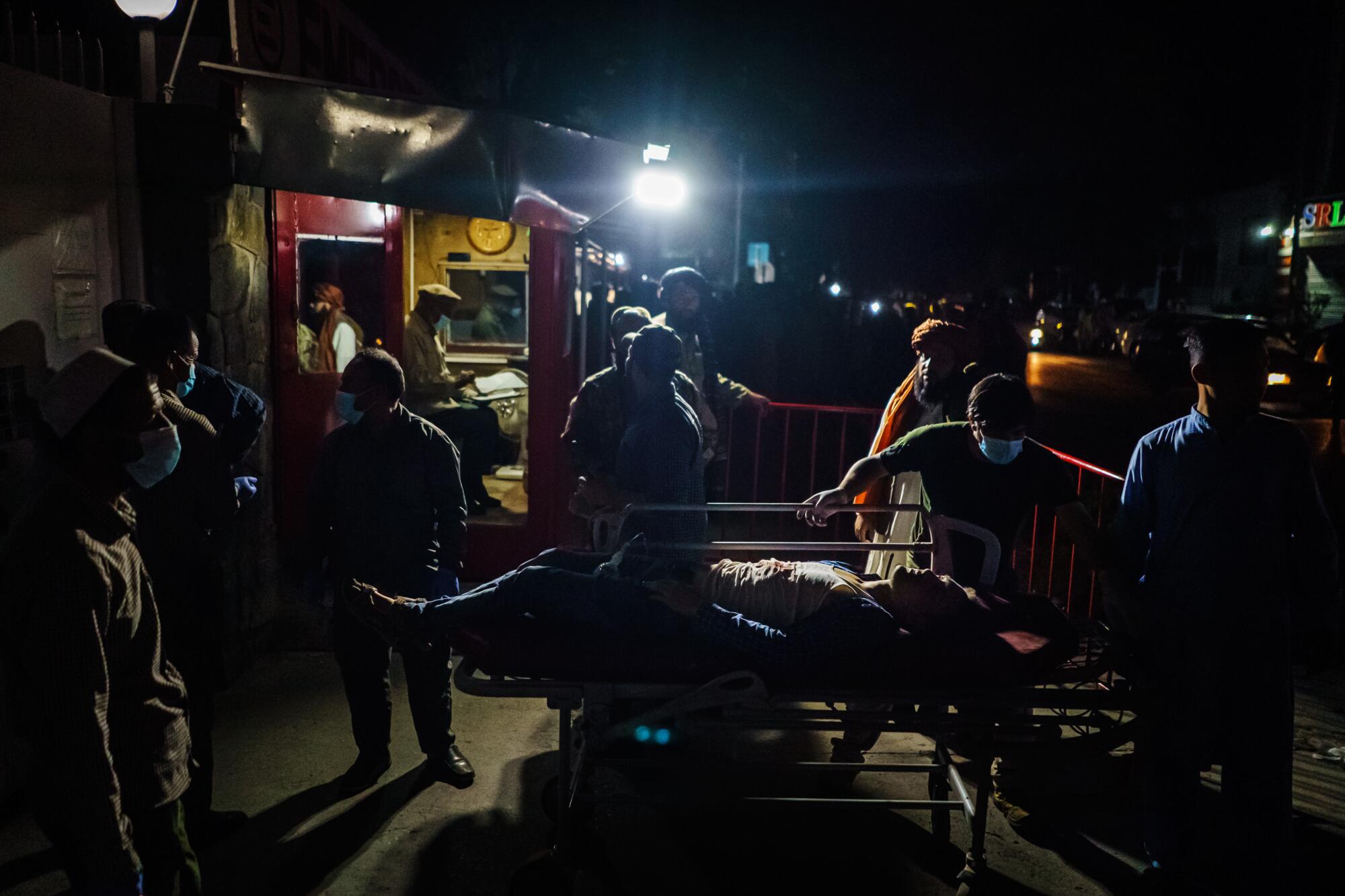
“I saw a flash, and then everyone just started running into each other,” said Mohibullah Atayi, 18, who had been trying to get in line at the airport and was about 300 yards from the first explosion. “It was chaos.”
He was unscathed, but his brother, 30-year-old Gulnur Atayi, who once worked as a security guard at a U.S. base in the western city of Herat, suffered wounds to his arms and legs and received a blood transfusion.
The intensive care ward of Wazir Akbar Khan Hospital was packed. Habib Jan, 35, lay amid an arsenal of beeping machines, his head and face covered with bandages, his body restless, his chest heaving.
His brother-in-law explained that Jan had been carrying an invitation to the United States from a relative there, hoping it would help get him onto a flight.
“He was going to give it to the Americans,” he said.
He would have to be moved to another hospital for neurosurgery, but that couldn’t happen immediately, a surgeon explained: “We don’t have any ambulances. They’re all being used.”
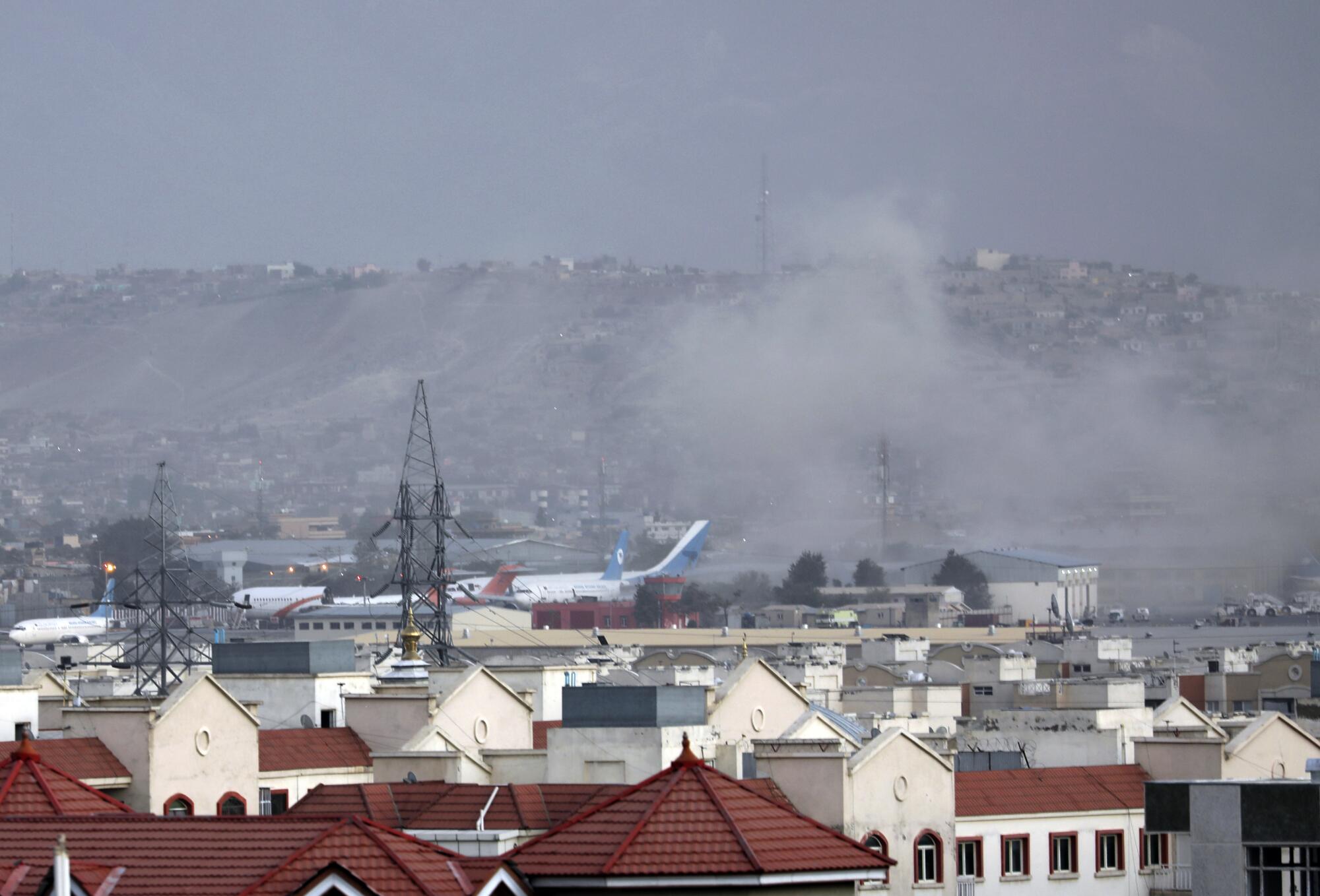
The bombings came hours after Western intelligence agencies warned of a potential attack. An anonymous U.S. official told the Associated Press that the blasts were probably the work of an affiliate of the extremist group Islamic State in Afghanistan, which includes former Taliban members who adhere to an even more radical interpretation of Islam.
The bombings complicate an already nightmarish airlift in its waning days and show the dangers the United States faces as it withdraws after its 20-year war in Afghanistan. But it’s also a preview of what the Taliban must confront in its bid to govern a nation long divided into unruly — and often cruel — factions.
The Islamic State affiliate, a group known as Islamic State in Khorasan, or ISIS-K, is a bitter rival of the Taliban. It has been blamed for some of the most recent attacks in Afghanistan, including the deadly bombing of a girls’ school in Kabul.
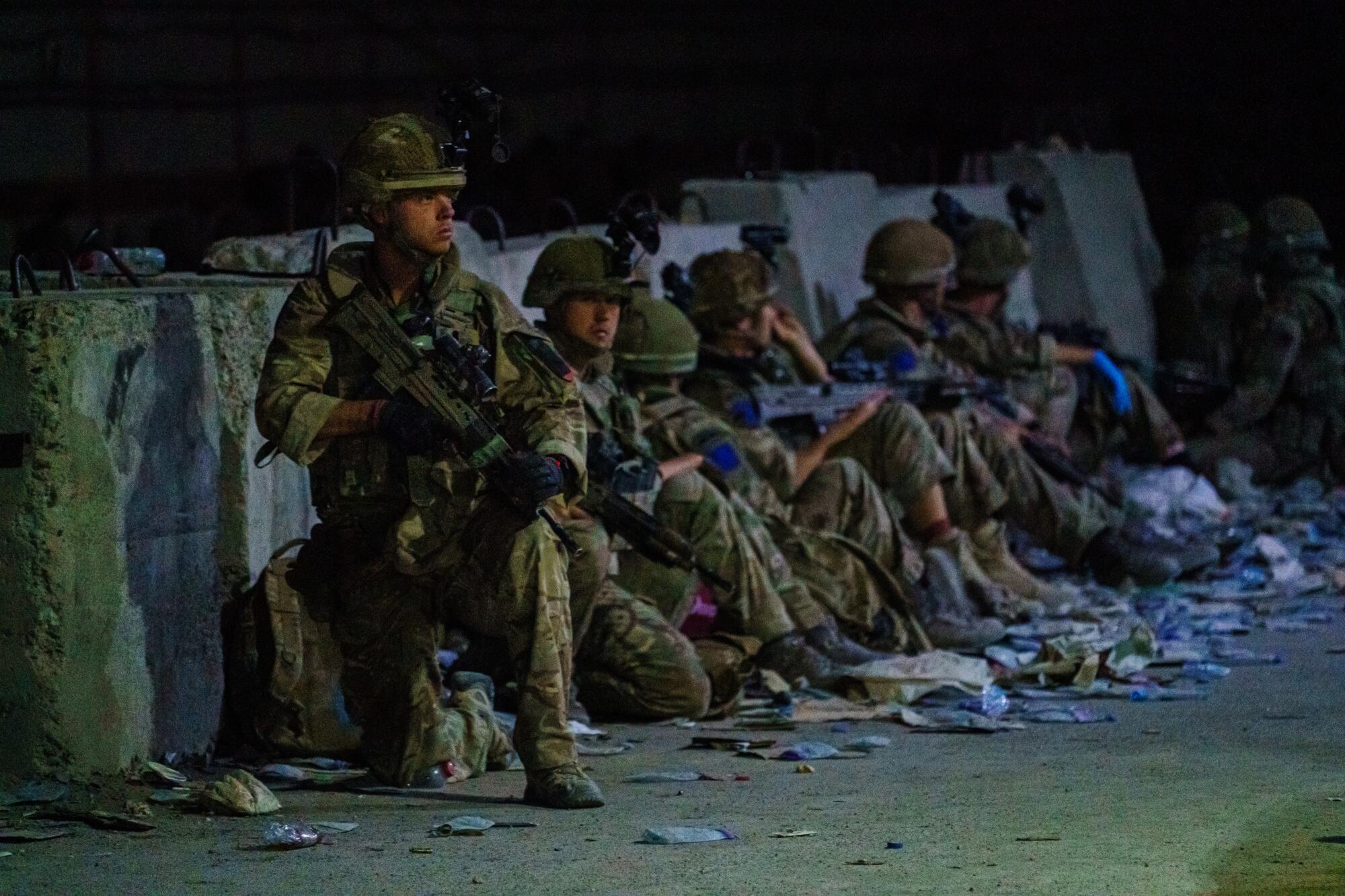
In the almost two weeks since the Taliban seized the country, it has tried to project an image of moderation with promises to end the spasms of blood-soaked warfare Afghanistan endured for decades.
When Afghan army troops fled Kabul on Aug. 15, Taliban fighters quickly filled the void. Armed with AK-47s, they patrolled the capital’s streets in pickups and Humvees, demonstrating what the group said was its commitment to law and order.
But the Taliban appears to be as vulnerable as the U.S. government it is set to replace, which brings into question its ability to corral the country toward peace.
Taliban spokesman Zabihullah Mujahid condemned the attack, saying the Islamic Emirate — the group’s name for Afghanistan — was paying close attention to the security and protection of its people. But he also deflected blame onto the United States, tweeting that the bombings had taken place in an area “where U.S. forces are responsible for security.”
Doctors, judges, athletes, activists: Afghan women trapped and considered at-risk under Taliban rule
In Taliban-controlled Afghanistan, women who fear being targeted for their work see dwindling hope of escape.
Video from the attack sites showed bloodied corpses piled on a bed of crumpled plastic bottles near a sewage canal. The area was the scene of queues of hundreds of people who lined up for hours in the sun to be processed for departure on the evacuation flights. British forces barred reporters from entering the area. Shouting and sporadic gunshots fired into the air could be heard from within.
Some bodies had to be fished out of the canal.
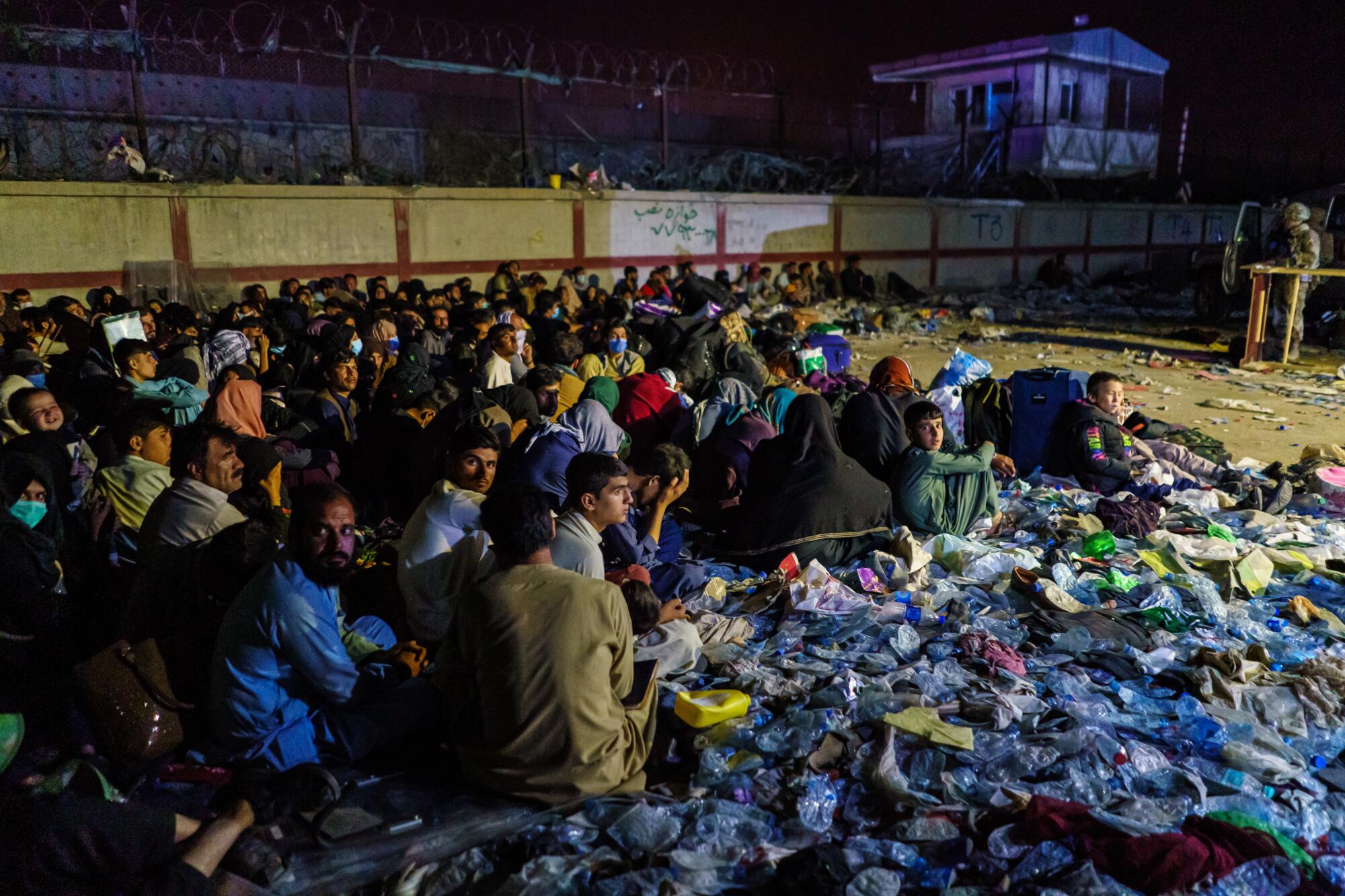
For days, thousands of Afghans and foreigners have been thronging Kabul’s international airport in their desperation to flee the country after its lightning takeover by the Taliban. The Biden administration insists that the U.S. airlift will end Tuesday, although that probably will mean leaving behind thousands of Afghans at risk of persecution or retribution by the Taliban.
Despite the warnings Wednesday of a potential attack, the crowds did not abate. And even after the explosions, some Afghan families continued to wait outside the Baron Hotel, watched over by stern British paratroopers standing in silence. A baby’s cry pierced the air.
Twenty-three representatives tell Biden that California is willing to house fleeing Afghan citizens.
Some of the wounded were taken to an emergency center for war victims. Taliban fighters tried to keep onlookers from crowding the hospital entrance, shouting at some and waving cars away. A man standing at the hospital’s doors called out names with a loudspeaker to family members and relatives assembled outside.
Ramin Sarwary, a 30-year-old doctor, kept vigil at the gate for word of his friend’s brother.
Through his family, the brother had managed to get permission to go to the U.K.
“He wanted to leave this country,” Sarwary said, adding that his friend had gone to another hospital to see if his brother was being treated there.
“Now we’re waiting here for news if he’s alive or dead.”
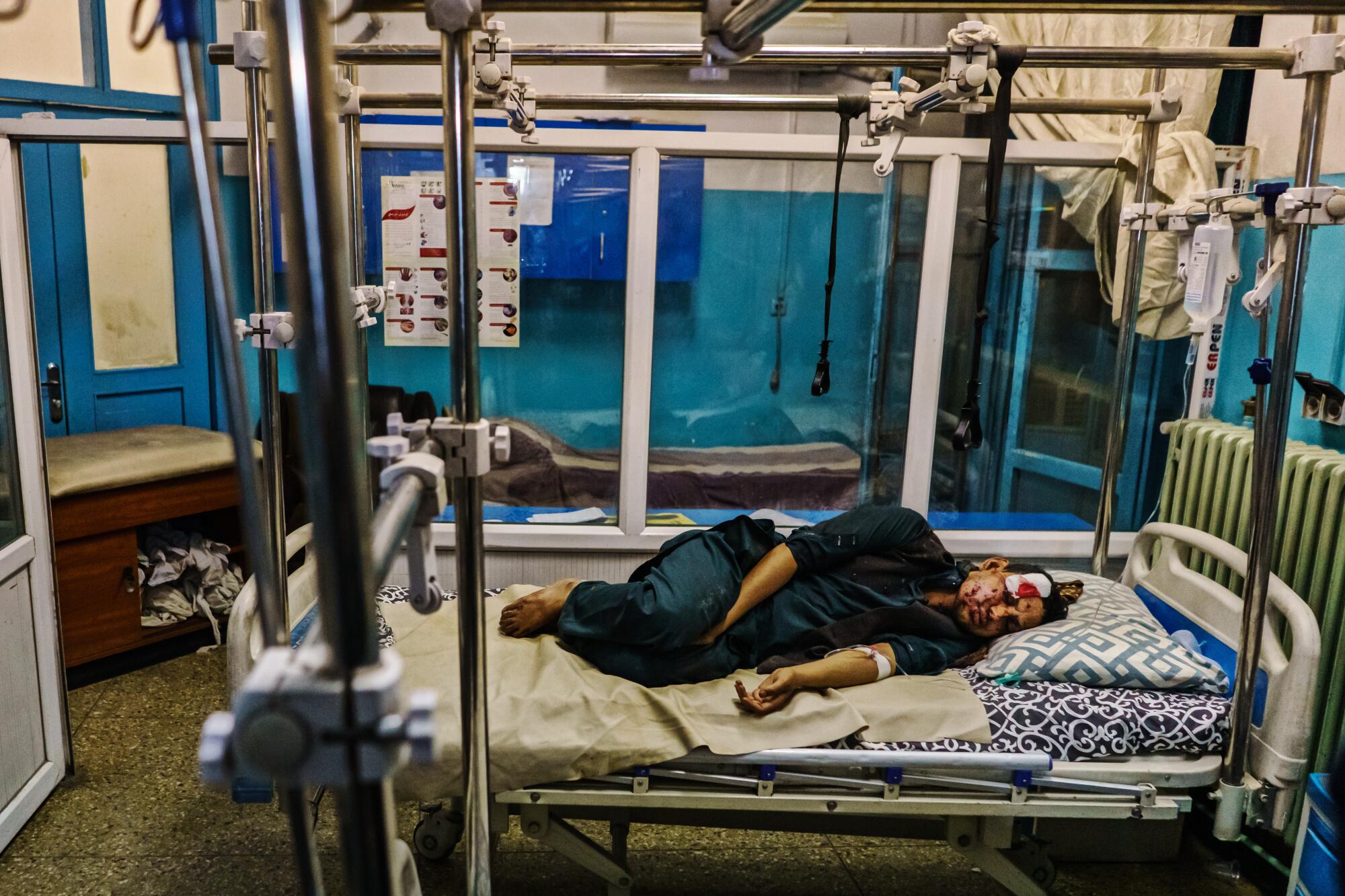
Nearby was Navid Ihsan, an ophthalmologist whose two sons and daughter had been trying for days to reach the area near the Baron Hotel.
He stared at the gate, unable to speak. Instead it was his friend, an avuncular man named Abdul Ghaffar, who spoke.
“We don’t know where they are. We’ve been trying to find them everywhere,” he said. “We’ve gone to two other hospitals and there’s no word.”
Breaking News
Get breaking news, investigations, analysis and more signature journalism from the Los Angeles Times in your inbox.
You may occasionally receive promotional content from the Los Angeles Times.
Abdul Qudus, 24, came to check on 11 of his family members from Beni Hisar, a village close to Kabul. Their business tanked after the Taliban swept through the city Aug. 15, and although they had no visas, they still rushed to the airport for a chance to leave the country.
“These were poor people — just street peddlers,” Abdul Qudus said. “We are feeling too bitter. All of us are feeling sad ever since the Taliban came.”
Hours later, there were still patients coming in. A yellow station wagon rolled up to the door of the Emergency Hospital. It’s trunk opened, and a little boy hobbled out before being placed on a stretcher and wheeled into the hospital.
A medic standing at the gate, Hafiz, fielded questions from desperate family members asking him if he recognized a name on the list of patients.
He shook his head when asked about the casualties.
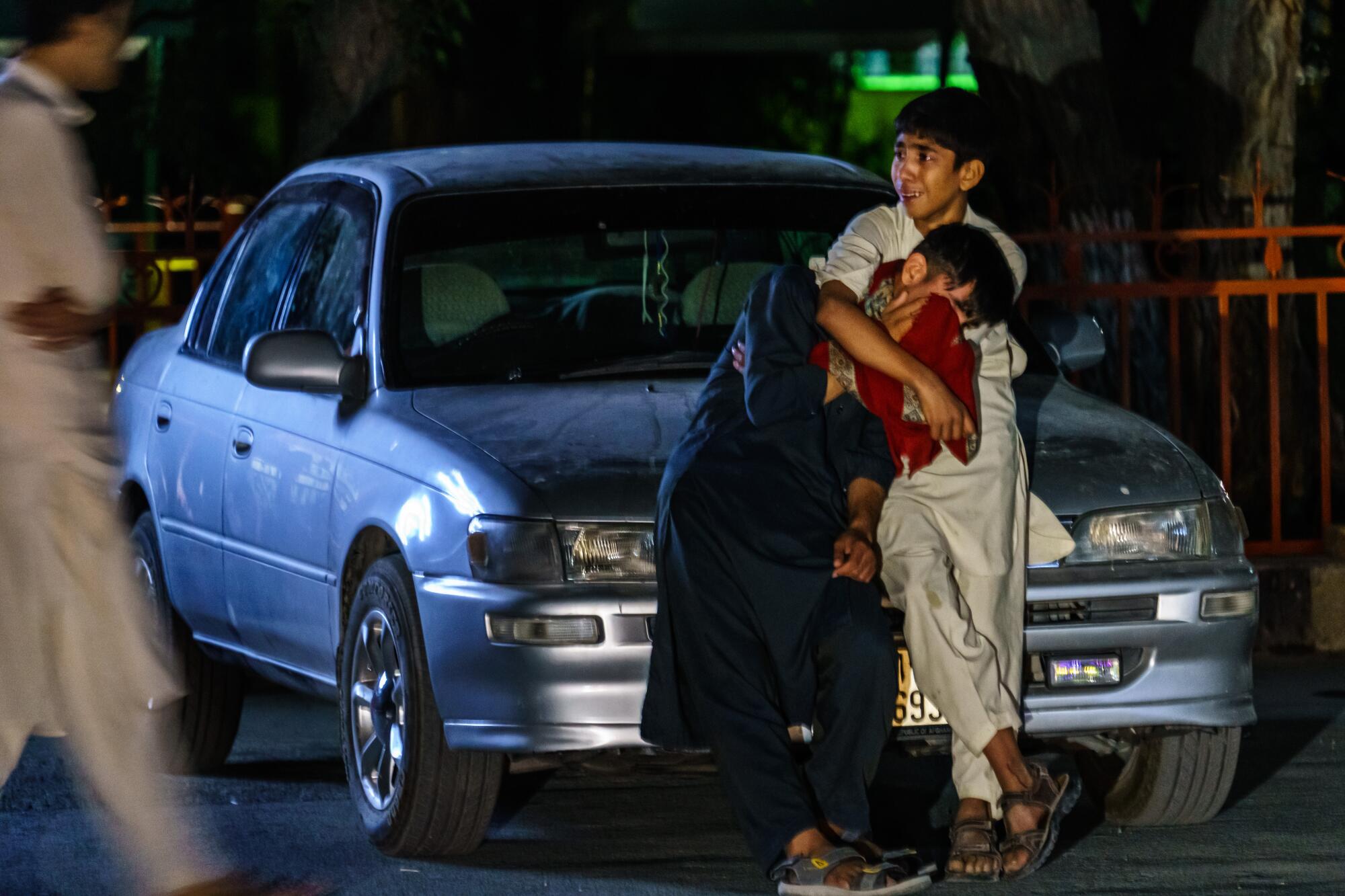
“There were maybe 50 of them,” he said. “Too many bodies. Too many wounded. There were five or six children in there too.”
At the Wazir Akbar Khan Hospital, relatives clamored to snap photos of a list of names taped on a wall of the emergency unit.
Tawos Shirza, 35, an engineer who said he worked with U.S. Marines in Helmand province for two years, was among the injured patients. He had gone to the airport to evacuate. A resident of Jalalabad, he arrived in Kabul on Thursday morning, traveling with his brother, Shirwali Shirza, 25, who was also at the hospital.
A father of six, Shirza had injuries to his legs. He was about 20 feet from the explosion. He said he saw a flash and then blacked out. When he regained consciousness, he said there was human flesh resting on his shoulder. He fell down into the canal and his brother pulled him out, all soaked.
There were bodies in the water and Shirza recalled hearing gunfire as people fled in a panic.
Times staff writers Chris Megerian and Tracy Wilkinson in Washington contributed to this report.
More to Read
Sign up for Essential California
The most important California stories and recommendations in your inbox every morning.
You may occasionally receive promotional content from the Los Angeles Times.
